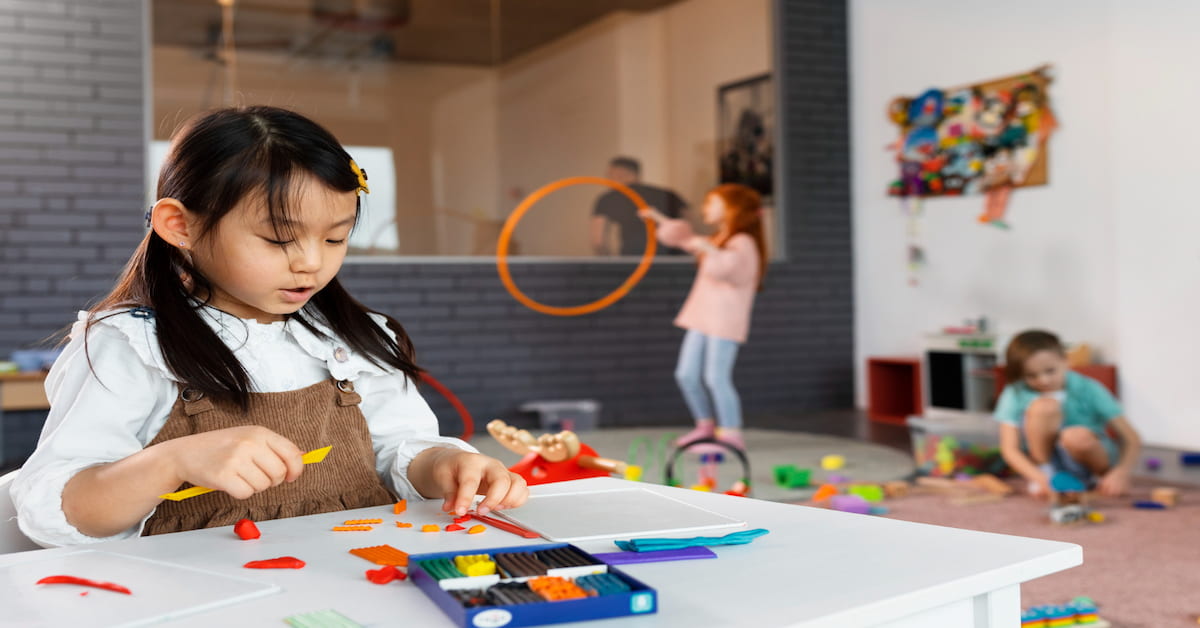The transition from kindergarten to primary school signifies a critical point for both children and families. Transition after the kindergarten period encompasses the time when families enroll their children in a primary school. Transition activities are intentionally designed to establish continuity in expectations, curriculum, and experiences across different settings, all while providing social and emotional support. These activities aim to support children and involve families in their entry into a new school, as well as promote collaboration between early childhood programs and primary schools.
8 Ways to Support Your Child’s Transition to Primary School after Kindergarten
The transition from kindergarten to primary school is a big step for any child. Many parents may be less aware of how important it is to prepare their child to enter this new phase. If you are wondering how and what should you be doing to help your child transition smoothly into Grade 1, we’ve got you covered. Here are 8 ways that would walk you through this phase.
1. Consistent Verbal Reminders
A few months before your child enters primary school, prepare them by explaining the differences between primary school and kindergarten. For example, in the 1st grade, the teacher will no longer accompany him to go to the toilet, or they should be able to eat lunch on their own. Try to repeat and emphasize these explanations on different occasions until your child can get them in memory.
2. It’s Time You Do It on Your Own
As your child increasingly understands the requirements in primary school, start getting them to do things on their own. You can start by training your child to go to the washroom on their own, eating without assistance, and even putting on their clothes or shoes. It’s best to start this habit much earlier and not a few months before school opens.
Read more: Effective Self-Management Skills for Students
3. Pay a Visit to the New School
Children will take time to adjust to unfamiliar environments, which is normal. We would urge you to take them to their new school to familiarize themselves, meet their teachers, and just have a good feeling about the surrounding environments. It helps when it’s locked into their visual memory. Get your child more excited for school by getting them involved in school preparations. It can be the simplest of things, like packing all the stuff they need in their bags. If you already have some materials on hand, no harm in letting them have a go at it early as well!
4. Encourage Them to Remember God
Before going to school, encourage your child to start a prayer with you. Say a blessing for your child as soon as your child has their backpack on and is ready for school. As quoted in the Bible, “The fear of the LORD is the beginning of knowledge” (Amsal 1:7). Doing this will help your child remember God during activities throughout the day. In the end, they can carry out every task given with confidence because they know that they never do it alone but together with Christ.
Read more: Tips to Start Family Worship Habits at Home
 5. Set a Regular Schedule
5. Set a Regular Schedule
The schedule and learning hours of primary school are pretty different in comparison with kindergarten. Start them early with a routine schedule, from waking up at the time they should be and going through the motions of preparing before school. It gets them going on a set time and do this early, so it’s much easier when the actual school day approaches! Besides the start of the daily schedule, it’s also important that you look into the after-school schedule as well. You’ll want to get a series of activities in before winding down for bed.
6. Stir Curiosity with New Learnings
In Grade 1, your child will be introduced to many new forms of learning and concepts on a much wider scale. This is applied to all their core subjects in mathematics, vocabulary, reading, and writing. To get a head start, get them working on building their cognitive ability through educational play that stimulates learning further. Children who have a great curiosity will grow in their love for learning which is a solid foundation to work on just before a journey into grade 1.
7. Building Self-Confidence
We’d love for our children to have courage and confidence in their new journey where you can work at it with them by simple praise and encouragement. This is exceptional when they’re learning new concepts just before going into primary school. Allow them to try new things and make a mistake or two, not intentional mistakes of course! If they do fumble, explain patiently and help them understand the errors. Children learn pretty quickly so keep going but allow them to learn for themselves with you being the guide.
8. Work on Communication
A child grows in their ability to communicate when they socialize with others. Set up play dates with their friends, and it’ll help them with their communication. You can also have regular discussions on topics that they’ll know how to respond to. Let them express themselves in those discussions. Being able to communicate well also builds their confidence, especially when facing new friends in their new environment.
Sekolah Pelita Harapan’s primary school ensures that every child who enters grade 1 goes through a smooth transition process. Grade 1 at SPH is an awesome place to kickstart your child’s journey into primary school. Grade 1 students in SPH are trained to not only learn the content of the lesson but also understand the whys and how it applies to their day-to-day.
Every child is special at SPH, and our teachers have a keen heart for children and a comprehensive understanding of the stages of child growth. Each child is a blessing, and we’re ever ready to be a blessing to every child and parent.








